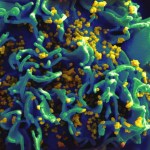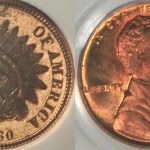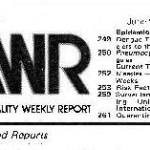aids
On Aetiology, Tara C. Smith explores the story of Gaetan Dugas, a man who was long blamed for precipitating the AIDS epidemic in the United States. The vilification of Dugas had nothing to do with science; instead he was dubbed "patient zero" in a misinterpretation of his study moniker "patient O" (for Outside). Dugas' portrayal in the media turned him into a modern Typhoid Mary, but he was not an originator of the U.S. epidemic, as a 2007 molecular analysis proved and a new paper in Nature confirms. Smith writes "This is the real scandal and lingering tragedy of Dugas. His story was used to…
The news over the past 24 hours has exclaimed over and over:
HIV's Patient Zero Exonerated
How scientists proved the wrong man was blamed for bringing HIV to the U.S.
Researchers Clear "Patient Zero" from AIDS Origin Story
H.I.V. Arrived in the U.S. Long Before ‘Patient Zero’
Gaetan Dugas: "patient zero" not source of HIV/AIDS outbreak, study confirms
HIV's supposed "Patient Zero" in the U.S., Gaetan Dugas, is off the hook! He wasn't responsible for our outbreak!
This is presented as new information.
Gaetan Dugas, from Wikipedia.
It is not, and I think by focusing on the "exoneration" of…
In January, Hillary Clinton still possessed the benefit of the doubt. Memories of her and Bill snarling at Barack Obama in 2008 had faded, and despite her long and dreadful record, it's always possible to turn over a new leaf. But Clinton's ongoing response to Bernie Sanders shows why she is unfit for the presidency. Even as the frontrunner, Hillary shows no leadership ability; she, too, follows Sanders, trailing him to the left as he takes meaningful positions on issues like income inequality and campaign finance reform. Her saccharine smile says "I can do that too!" but truly she…
A few of the recent pieces I've liked:
Alana Semuels in The Atlantic: How Poor Single Moms Survive
Nina Martin of ProPublica interviews David Cohen: For Abortion Providers, a Constant Barrage of Personalized Harassment
Terry Fulmer at the Health Affairs Blog: Independence -- It's What Older People Want
Charles D. Ellison at The Root: Wake Up, Black People. The Supreme Court Is Poised to Drop a Bomb on You
Vanessa Heggie in The Guardian: World AIDS Day: How AIDS activists changed medical research (also, it's not a new publication, but World AIDS Day was a good opportunity to re-read this…
Long-term readers of the blog know of my interest in HIV denialism, especially as it is maintained and spread via the Internet. In my online travels, I recently met John Strangis via this blog post. John has an interesting story to tell regarding his experiences with HIV denialism and subsequently, his turn to patient and science activism. Many thanks to John for sharing it here.
John with his wife and son.
TS: Can you tell the readers a bit about yourself?
JS: My name is John Strangis. I was born in the United States from Italian parents but lived for fifteen…
Does anyone remember the H1N1 influenza pandemic? As hard as it is to believe, that was five years ago. One thing I remember about the whole thing is just how crazy both the antivaccine movement and conspiracy theorists (but I repeat myself) went over the public health campaigns to vaccinate people against H1N1. It was truly an eye-opener, surpassing even what I expected based on my then five year experience dealing with such cranks. Besides the usual antivaccine paranoia that demonized the vaccine as, alternately, ineffective, full of “toxins,” a mass depopulation plot, and many other…
Everything old is new again. For years on this blog, I wrote about HIV denial and the few fringe scientists and journalists who espoused it. I attracted a host of trolls, some of whom repeatedly attacked my credibility, my appearance, even showed up at my academic office. One of the most prolific of these was Henry Bauer, who posts long-debunked ideas on HIV/AIDS (and the Loch Ness Monster to boot).
That was, oh, 2007-ish and prior. In that same year Steven Novella and I co-authored an article on HIV denial for PLoS Medicine. In 2008, a leader of the denial movement, Christine…
Gregg Mitman's article in the September 17th New England Journal of Medicine, "Ebola in a Stew of Fear," is unfortunately all too prescient. Dr. Mitman highlighted "the ecology of fear" in Western Africa. Fear is present on both the part of Westerners (scared of Africa's yellow fever, malaria, Ebola, its mere "different-ness"), and by native Africans (of whites' history of colonization and slavery, of medical exploitation dating back well over a century). Fear of each other.
This history of fear, the cultural legacy of decades of mistrust of both Western people and their medical…
Dr. Janet Yamamoto from the University of Florida College of Veterinary Medicine was quoted in a press release this week saying, “One major reason why there has been no successful HIV vaccine to date is that we do not know which parts of HIV to combine to produce the most effective vaccine." Her research team is trying to develop a vaccine that stimulates T cells from people infected with HIV to respond to the feline (FIV) form of the virus. They are working toward that goal by searching for sections of the FIV virus that can activate T cells to attack HIV without mutating.
Dr…
The Internet has produced a revolution with respect to information. Now, people anywhere, any time, can find almost any information that they want, as long as they have a connection to the global network and aren't unfortunate enough to live in a country that heavily censors the Internet connections coming in. In addition, anyone any time can put his or her opinion out on the Internet and it might be read by people on the other side of the planet. For example, it continually amazes me that my blatherings here are read by people in Australia and New Zealand, as well as Europe and pretty…
Yesterday, US Secretary of State John Kerry marked the 10th anniversary of the creation of PEPFAR, the US President's Plan for Emergency AIDS Relief. President George W. Bush launched PEPFAR in 2003 with an initial $15-billion, five-year commitment to provide antiretroviral therapy (ART) to HIV-infected people in developing countries.
This month, Kerry announced, the one millionth baby will be born HIV-free to an HIV-positive mother because of PEPFAR support. US Global AIDS Coordinator Eric Goosby spoke to AFP about this achievement. AFP's Jo Biddle writes:
The program was working to "…
It's time for this year's second installment of student guest posts for my class on infectious causes of chronic disease. Third one this round is by Jack Walsh.
The Human Immunodeficiency Virus (HIV) infection is one of the most significant global health challenges of this 21st century. Since the isolation of the virus in 1983, it has infected 70 million people among whom 35 million have died of Acquired Immunodeficiency Syndrome (AIDS).1 Although important progresses have been made in slowing down the pandemic and reducing the morbidity and mortality related to HIV/AIDS with…
Fifth of five student guest posts by Jonathan Yuska
The saying, “The more you know, the more you can control,” is no more meaningful than when used in the context of HIV detection and prevention. Public health advocates endlessly stress the need for knowing one’s status; and one would assume that any way in which the most amount of people can be tested would be beneficial for the population1. The Food and Drug Administration shared this same idea when they overwhelmingly approved the first ever over-the-counter (OTC) HIV testing kit in 20052; which in theory, sounds like a promising…
Second of five student guest posts by Nai-Chung N. Chang
Tuberculosis (TB) is a major disease burden in many areas of the world. As such, it was declared a global public health emergency in 1993 by the World Health Organization (WHO). It is a bacterial disease that is transmitted through the air when an infected individual coughs, sneezes, speaks, or sings. However, not all individuals who contract the disease will display symptoms. This separates the infected into two categories, latent and active. Latent individuals are non-infectious and will not transmit the disease, whereas active…
By Rebecca Kreston
“Pneumocystis Pneumonia --- Los Angeles,” in the June 5, 1981 edition of the CDC’s Morbidity and Mortality Weekly Report, was an economical seven paragraph clinical report cataloging five observed cases, accompanied by an explanatory editorial note on the rarity of this fungal disease. It seemed to be nothing out of the ordinary from MMWR, a publication that has been issuing the latest epidemiology news and data from around the world for 60 years. The report was included in that week’s slim 16 page report detailing dengue in American travelers visiting the Caribbean,…
Carol Meteyer, USGS National Wildlife Health Center
With an estimated 6.7 million bat deaths related to white nose syndrome, understanding this devastating disease is more important than ever. Wildlife Pathologist Carol Meteyer, from the USGS National Wildlife Health Center, has been studying the carcasses of bats that survived white nose syndrome infections, only to succumb to their own immune systems. The overactive immune response is called immune reconstitution inflammatory syndrome (IRIS). While hibernating, the immune system of these bats are…
December 1 was World AIDS Day, and this year's theme is "Working Together for an AIDS-Free Generation." In the 2011 United Nations Political Declaration on HIV and AIDS, countries set ambitious goals to reach by 2015:
Reduce sexual transmission by 50%.
Reduce HIV transmission among people who inject drugs by 50%.
Eliminate new infections among children and substantially reduce the number of mothers dying from AIDS-related causes.
Provide antiretroviral therapy to 15 million people.
Reduce the number of people living with HIV who die from tuberculosis by 50%.
Close the global AIDS resource…
Although I focus mostly on medical topics, such as vaccines, alternative medicine, and cancer quackery, I don't limit myself to such topics. True, I used to write a lot more about evolution and creationism, the paranormal, and other standard skeptical topics, but over the last couple of years I've realized where my strength is and where my niche is. So I continue to do what I do, but that doesn't mean I've lost interest in those topics. I've just learned that there are those who can do them as well as I can, while the number of people who can do what I do with respect to quackery and medical…
Regular readers don't need to be told that I'm a bit obsessed with zoonotic disease. It's what I study, and it's a big part of what I teach. I run a Center devoted to the investigation of emerging diseases, and the vast majority of all emerging diseases are zoonotic. I have an ongoing series of posts collecting my writings on emerging diseases, and far too many papers in electronic or paper format in my office to count. Why the fascination? Zoonotic diseases have been responsible for many of mankind's great plagues--the Black Death, the 1918 "Spanish" flu pandemic, or more recently, HIV/AIDS…
The 19th International AIDS Conference is happening this week here in Washington, DC, and as the Washington Post's David Brown reminds us, it's a very different gathering from one that took place in San Francisco in 1990, when HIV was a mystery and AIDS a death sentence. Today, AIDS is still a terrible disease, but better understanding of it has improved both interventions and attitudes. "The issue is no longer what to do but rather whom to do it for, where, how quickly and at what cost," Brown writes. He offers this global snapshot:
Today, more than 8 million people in low- and middle-income…









